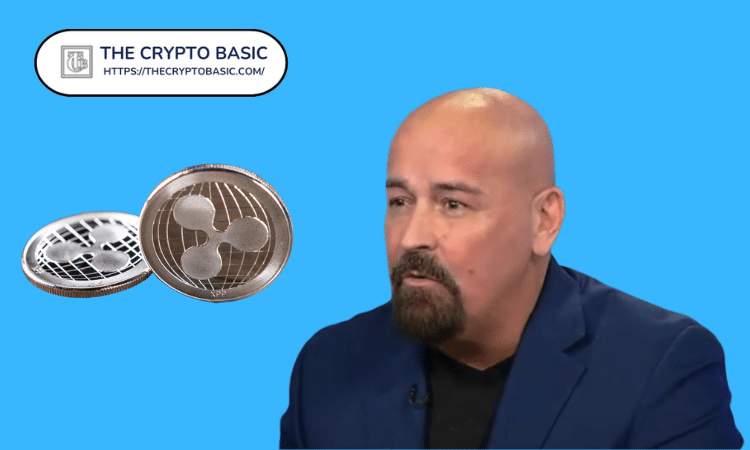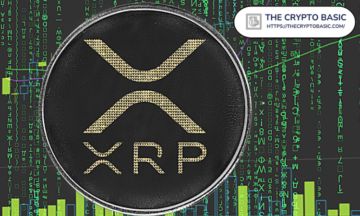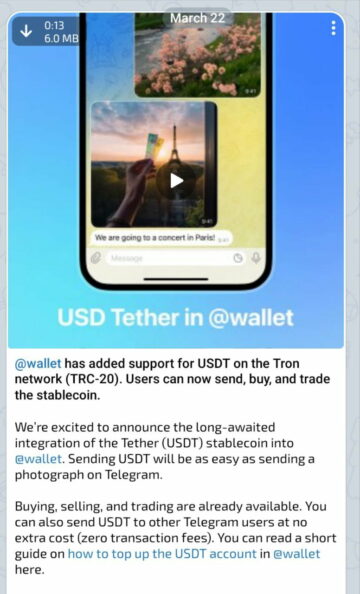
Attorney John Deaton says exhibit 220 and other memos may impact whether Ripple CEO and Chairman offered and sold XRP as a security.
Managing Partner at Deaton law firm John Deaton issued a statement regarding an internal SEC email labeled Exhibit 220 in the ongoing Ripple lawsuit.
In a thread yesterday, a crypto enthusiast Steven Mizrahie shared a document moments after the parties filed public, redacted versions of cross-motions for summary judgment and accompanying exhibits.
@JohnEDeaton1 @attorneyjeremy1 @freddyriz @Belisarius2020 @Marc_Fagel As it relates to the #XRP analysis in Exhibit 220, do we know who drafted and disseminated it (and to whom)? If it was in fact created by the SEC, it appears to be game over. pic.twitter.com/lBA2mDGnEV
— Steven Mizrahie (@smizrahie) June 13, 2023
The document relates to an analysis of XRP sent to the SEC, which noted that the crypto asset does not satisfy all prongs of Howey – a legal test used to determine whether a transaction constitutes a security in the US.
The document stated: “[…] there are reasonable grounds for determining that XRP does not satisfy each prong of the Howey Test, and thus there are reasonable grounds for concluding that XRP should not be considered an investment contract or security within the meaning of the Securities Act.”
Commenting on the development, Mizrahie said it would be game over for the SEC if the commission wrote the document.
In response to the comment, former SEC lawyer Marc Fagel said the Securities and Exchange Commission did not write the document. In its brief, he stated that Ripple clarified that an unidentified party drafted the exhibit.
Interestingly, Deaton also joined the conversation. The pro-XRP lawyer backed Fagel’s comment. He added that an SEC staff wrote the document on June 13, 2018, a day before William Hinman declared Bitcoin and Ethereum as non-securities at the Yahoo Finance All Markets Summit.
“This was a third party sending their analysis to the SEC,” said Deaton.
No. It’s not written by SEC staff. The one written by SEC staff dated June 13, 2018 was ruled privileged and not turned over to ripple. This was a third party sending their analysis to the SEC.
— John E Deaton (@JohnEDeaton1) June 13, 2023
Deaton Makes New Assertions in Ripple Case
Meanwhile, Deaton posted a new tweet to clear any misconception that may come up due to the document. Deaton clarified that a judge could disagree with an SEC enforcement lawyer who wrote a Howey analysis on XRP and concluded that the coin’s sales do not satisfy all prongs of the test.
Similarly, the judge could also disagree with an enforcement lawyer who concluded that XRP is a security.
Per Deaton, exhibit 220 and other memos on XRP could impact Judge Torres’ decisions, especially regarding whether Ripple’s CEO (Brad Garlinghouse) and Chairman (Chris Larsen) were reckless in not knowing that the crypto asset was a security.
“If the SEC itself was struggling in 2018 to determine whether XRP was being offered/sold as a security, could these two executives still be reckless in 2013?” Deaton quizzed.
People need to know that even if an SEC enforcement lawyer had written a Howey analysis on XRP and concluded sales of XRP do not meet all factors of the Howey test, a Judge could disagree and find they do. Likewise, if an enforcement lawyer found that XRP was a security, the… https://t.co/EsBnJ7A1ZO
— John E Deaton (@JohnEDeaton1) June 13, 2023
It bears mentioning that Deaton unearthed the information in Exhibit 220 last month, with top XRP enthusiasts stating that the case now looks bad for the SEC.
There is still no official date for Judge Torres to issue her summary judgment decision. Since the parties filed public, redacted summary judgment materials yesterday, XRP community members expect the ruling to come soon.
Follow Us on Twitter and Facebook.
Disclaimer: This content is informational and should not be considered financial advice. The views expressed in this article may include the author’s personal opinions and do not reflect The Crypto Basic’s opinion. Readers are encouraged to do thorough research before making any investment decisions. The Crypto Basic is not responsible for any financial losses.
-Advertisement-
- SEO Powered Content & PR Distribution. Get Amplified Today.
- EVM Finance. Unified Interface for Decentralized Finance. Access Here.
- Quantum Media Group. IR/PR Amplified. Access Here.
- PlatoAiStream. Web3 Data Intelligence. Knowledge Amplified. Access Here.
- Source: https://thecryptobasic.com/2023/06/14/deaton-says-this-information-may-determine-whether-ripple-execs-sold-xrp-as-a-security/?utm_source=rss&utm_medium=rss&utm_campaign=deaton-says-this-information-may-determine-whether-ripple-execs-sold-xrp-as-a-security
- :is
- :not
- $UP
- 11
- 12
- 13
- 2013
- 2018
- 220
- 7
- 9
- a
- Act
- added
- advice
- After
- All
- also
- an
- analysis
- and
- any
- ARE
- article
- AS
- asset
- At
- author
- backed
- Bad
- basic
- BE
- Bears
- before
- being
- Bitcoin
- bitcoin and ethereum
- brad
- Brad Garlinghouse
- by
- case
- ceo
- chairman
- Chris
- clear
- come
- comment
- commission
- community
- concluded
- considered
- content
- contract
- Conversation
- could
- created
- crypto
- crypto asset
- Date
- dated
- day
- decision
- decisions
- Determine
- determining
- Development
- DID
- do
- document
- does
- drafted
- due
- e
- each
- encouraged
- enforcement
- enthusiast
- enthusiasts
- especially
- Ether (ETH)
- ethereum
- Even
- exchange
- Execs
- executives
- exhibit
- exhibits
- expect
- expressed
- fact
- factors
- finance
- financial
- financial advice
- Find
- Firm
- For
- Former
- found
- game
- Garlinghouse
- grounds
- had
- he
- her
- hinman
- Howey
- Howey Test
- HTTPS
- if
- Impact
- in
- include
- information
- Informational
- internal
- investment
- issue
- Issued
- IT
- ITS
- itself
- John
- John Deaton
- joined
- judge
- june
- Know
- Knowing
- Last
- Law
- law firm
- lawsuit
- lawyer
- Legal
- likewise
- LOOKS
- losses
- MAKES
- Making
- Markets
- materials
- May..
- meaning
- Meet
- Members
- Moments
- Month
- Need
- New
- no
- noted
- now
- of
- offered
- official
- on
- ONE
- ongoing
- Opinion
- Opinions
- or
- Other
- over
- parties
- partner
- party
- personal
- plato
- Plato Data Intelligence
- PlatoData
- posted
- privileged
- public
- readers
- reasonable
- reckless
- reflect
- regarding
- research
- response
- responsible
- Ripple
- Ripple Ceo
- ripple lawsuit
- ruled
- ruling
- s
- Said
- sales
- says
- SEC
- SEC enforcement
- Securities
- Securities and Exchange Commission
- security
- sending
- sent
- shared
- should
- since
- sold
- Soon
- Staff
- stated
- Statement
- Still
- Struggling
- SUMMARY
- Summit
- test
- that
- The
- The Crypto Basic
- the information
- their
- There.
- These
- they
- Third
- this
- to
- top
- transaction
- true
- Turned
- tweet
- two
- us
- used
- views
- was
- we
- were
- whether
- which
- WHO
- WIlliam Hinman
- with
- within
- would
- write
- written
- xrp
- Yahoo
- yahoo finance
- yesterday
- zephyrnet












